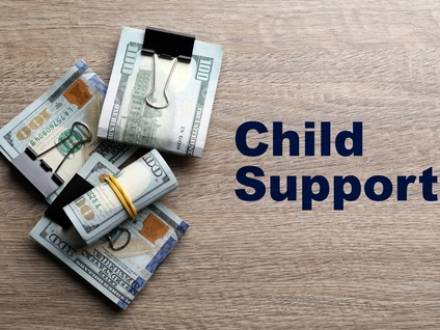Recent Blog Posts
Understanding the Allocation of Parental Responsibilities in Illinois
 One of the most important decisions to make when separating or getting a divorce with minor children is the allocation of parental responsibilities (previously known as custody). This means deciding which parent will have significant decision-making obligations and how parents will divide parenting time (formerly known as physical custody or visitation). As you navigate custody negotiations, an experienced Illinois child custody lawyer can help you understand the laws that apply to allocating parental responsibilities, working with you to make choices that serve your child’s best interests.
One of the most important decisions to make when separating or getting a divorce with minor children is the allocation of parental responsibilities (previously known as custody). This means deciding which parent will have significant decision-making obligations and how parents will divide parenting time (formerly known as physical custody or visitation). As you navigate custody negotiations, an experienced Illinois child custody lawyer can help you understand the laws that apply to allocating parental responsibilities, working with you to make choices that serve your child’s best interests.
What Are the Decision-Making Obligations?
Decision-making responsibilities specifically refer to the following in Illinois:
-
Healthcare choices, such as doctors, treatments, and medication
How Can I Ensure My Separate Property Is Not Divided in the Divorce?
 You are in the midst of a divorce in Illinois and are worried that you will lose your separate property. After all, Illinois is an equitable distribution state, so marital property is divided fairly between the spouses no matter what. Separate property is not subject to division, but how can you be sure that your ex-spouse will not end up with your property?
You are in the midst of a divorce in Illinois and are worried that you will lose your separate property. After all, Illinois is an equitable distribution state, so marital property is divided fairly between the spouses no matter what. Separate property is not subject to division, but how can you be sure that your ex-spouse will not end up with your property?
Concerns about property division during divorce are common, and a skilled Illinois family law attorney can represent you and ensure that the property division process does not affect your separate property. At Law Office of Ronald L. Hendrix, P.C., we are familiar with Illinois laws and regulations governing divorce-related property division.
What Qualifies as Separate Property in Illinois?
Illinois law states what separate, non-marital, property is. It includes:
Is Living Apart the Same as Legal Separation in Illinois?
 Perhaps your marriage began falling apart several years ago when your husband moved out of the house and into his own apartment while you remained in the marital home. Although your husband pays child support, spends time with the child, and helps you pay the bills, it is essential to recognize that this does not constitute a legal separation under Illinois law, and may have significant adverse consequences.
Perhaps your marriage began falling apart several years ago when your husband moved out of the house and into his own apartment while you remained in the marital home. Although your husband pays child support, spends time with the child, and helps you pay the bills, it is essential to recognize that this does not constitute a legal separation under Illinois law, and may have significant adverse consequences.
Although you may not see much difference, living apart and legal separation are two entirely different things. Now, your husband is asking for a divorce, and his list of demands is making your head spin. Because you haven’t lived together for years, you may have assumed that if he ever asked for a divorce, your life would continue in much the same way. This is a situation that requires a highly experienced Will County, IL family law attorney who can help you sort out all the issues.
Is It Possible to Obtain a Spousal Support Modification?
 Since spousal support – also known as alimony or spousal maintenance – is typically a controversial issue during a divorce, if the receiving spouse asks for an increase or the paying spouse asks that the amount be decreased later on, the issue can get even more contentious. Unless an Illinois divorce order states that the awarded spousal support is non-modifiable, there are circumstances under which it can be later modified.
Since spousal support – also known as alimony or spousal maintenance – is typically a controversial issue during a divorce, if the receiving spouse asks for an increase or the paying spouse asks that the amount be decreased later on, the issue can get even more contentious. Unless an Illinois divorce order states that the awarded spousal support is non-modifiable, there are circumstances under which it can be later modified.
The modification of spousal support is covered under 750 ILCS 5/510. If your ex is asking for an increase in support or you, as the paying spouse, need to request that the amount be lowered, it is time to speak to an experienced Will County, IL family law attorney.
What if the Paying Spouse Wants to Reduce Spousal Support?
Whether an individual is asking for spousal support to be increased, reduced, or terminated, there must be a "substantial change in circumstances" for a judge to consider a modification. Most spousal support awards have a set period of time. When this time is up – or if the receiving spouse marries, cohabitates, or dies or the paying spouse dies – then the order would likely end.
My Ex Moved and Says He Does Not Have to Pay Child Support
 Suppose that soon after your divorce, your ex-spouse remarries and then moves several states away. Although you have done everything in your power to facilitate visitation with the two children you share, he has shown little interest in seeing them. Recently, he has also stopped paying child support.
Suppose that soon after your divorce, your ex-spouse remarries and then moves several states away. Although you have done everything in your power to facilitate visitation with the two children you share, he has shown little interest in seeing them. Recently, he has also stopped paying child support.
When you attempt to talk to him about the missed payments, he becomes very defensive, saying he is not responsible for child support since he never sees the children. Additionally, he and his new wife now have two children of their own, which he also uses as an excuse to stop paying child support for your children.
Divorced parents have many issues that complicate their lives, and child support is one of those issues. Many parents who are responsible for paying child support are surprised to find that there is no correlation between whether a parent exercises his or her parenting time and child support. The courts presume that, barring any unusual situations, children are better off spending time with both parents.
When Is an NDA Necessary in a Divorce?
 A non-disclosure agreement (NDA) is usually associated with a business rather than a marriage. However, there are times when an NDA can - and should - be part of a couple’s marriage and divorce. NDAs are often known as confidentiality agreements, which legally limit what details can be shared about business practices or the details of a marriage.
A non-disclosure agreement (NDA) is usually associated with a business rather than a marriage. However, there are times when an NDA can - and should - be part of a couple’s marriage and divorce. NDAs are often known as confidentiality agreements, which legally limit what details can be shared about business practices or the details of a marriage.
Celebrity couples often use NDAs when they marry to limit negative press and preserve reputations in the event of a divorce. In our current social media era, an NDA might be a good idea for virtually any divorcing couple, as it is all too easy to vent on social media publicly. If you believe your divorce could benefit from an NDA agreement, speaking to a skilled Will County, IL family law attorney can be helpful.
What Is the Purpose of an NDA In a Divorce?
A non-disclosure agreement in a divorce is a legal contract that limits the information that can be shared by the divorcing spouses. Some of the reasons an NDA is used might include:
Parenting Plans for Parents Who Work Shift Work
 Under Senate Bill 3207, Illinois daycare centers are now allowed to operate for 24 hours and provide care for a child for up to 12 hours. This can significantly benefit parents whose jobs require shift work. A study done years ago (2007) in Illinois found that 42 percent of parents across the state work non-traditional hours. It is likely that this percentage is still true today, making flexible daycare essential.
Under Senate Bill 3207, Illinois daycare centers are now allowed to operate for 24 hours and provide care for a child for up to 12 hours. This can significantly benefit parents whose jobs require shift work. A study done years ago (2007) in Illinois found that 42 percent of parents across the state work non-traditional hours. It is likely that this percentage is still true today, making flexible daycare essential.
In families where one or both parents work non-traditional hours, they usually find solutions to childcare. These solutions can include different work shifts for the parents, paid daycare facilities, or family members who can help them manage their work hours and children. What may have been manageable when a couple worked together to make it manageable can be much less so after a divorce when making a parenting plan.
Can I Get Custody of My Kids if I Have a Criminal Record?
 Even under the best circumstances, determining child custody (the "allocation of parental responsibilities" in Illinois) can be difficult at best. If one parent has a criminal history, that may make the determination of parental responsibilities even more complex. A spouse who did not care about the other’s criminal history when they met may now try to use that history as a means of preventing the other parent from spending much time with the couple’s child.
Even under the best circumstances, determining child custody (the "allocation of parental responsibilities" in Illinois) can be difficult at best. If one parent has a criminal history, that may make the determination of parental responsibilities even more complex. A spouse who did not care about the other’s criminal history when they met may now try to use that history as a means of preventing the other parent from spending much time with the couple’s child.
Illinois courts care about the child’s best interests rather than penalizing a parent with a criminal record. This means that while a criminal history may be one factor the court will consider, it is far from the only factor, and it may not even be the most important factor. If you have a criminal record and want to know how it will affect the determination of parental responsibilities and parenting time, it is time to speak to a knowledgeable Will County, IL family law attorney.
What to Expect from a Legal Separation
 When marriages break down, most couples opt to file for divorce. For some, however, there are compelling reasons to file for a legal separation before choosing the permanent solution of divorce. A couple may decide to legally separate and live apart to see whether they want to remain married.
When marriages break down, most couples opt to file for divorce. For some, however, there are compelling reasons to file for a legal separation before choosing the permanent solution of divorce. A couple may decide to legally separate and live apart to see whether they want to remain married.
Some couples have religious reasons to avoid divorce and may legally separate instead. With health insurance so expensive and sometimes difficult to obtain, some couples may remain legally married to continue having health insurance while living apart as legally separated. Under an Illinois legal separation, you are still legally married but living apart.
Your separation agreement can determine the allocation of parental responsibilities, parenting time, child support, and spousal support until one or both partners decide to live together again or divorce. More information regarding legal separation in the state is below, but your best source of information is a Will County, IL family law attorney.
How Do I Divorce a Spouse with Alzheimer’s?
 When a spouse is diagnosed with Alzheimer’s or dementia, the future can look fairly bleak – both for the diagnosed spouse and for the healthy spouse. The disease may progress quickly or more slowly and can change most aspects of a marital relationship. Those with spouses who are diagnosed with Alzheimer’s may find their role in the marriage has completely changed – and can be overwhelmed by the changes and the added responsibilities.
When a spouse is diagnosed with Alzheimer’s or dementia, the future can look fairly bleak – both for the diagnosed spouse and for the healthy spouse. The disease may progress quickly or more slowly and can change most aspects of a marital relationship. Those with spouses who are diagnosed with Alzheimer’s may find their role in the marriage has completely changed – and can be overwhelmed by the changes and the added responsibilities.
Along with dealing with changes to the relationship, a spouse who makes the hard decision to divorce his or her spouse with Alzheimer’s will also likely face judgment from others. Family members, friends, and even strangers may pass judgment on your decision to divorce.
It can be hard to remember that they are not privy to your day-to-day life and have no idea about the challenges. There are additional steps to be taken once you decide to divorce a spouse who has Alzheimer’s. A Will County, IL family law attorney can help you through the process with the best outcome possible.

















